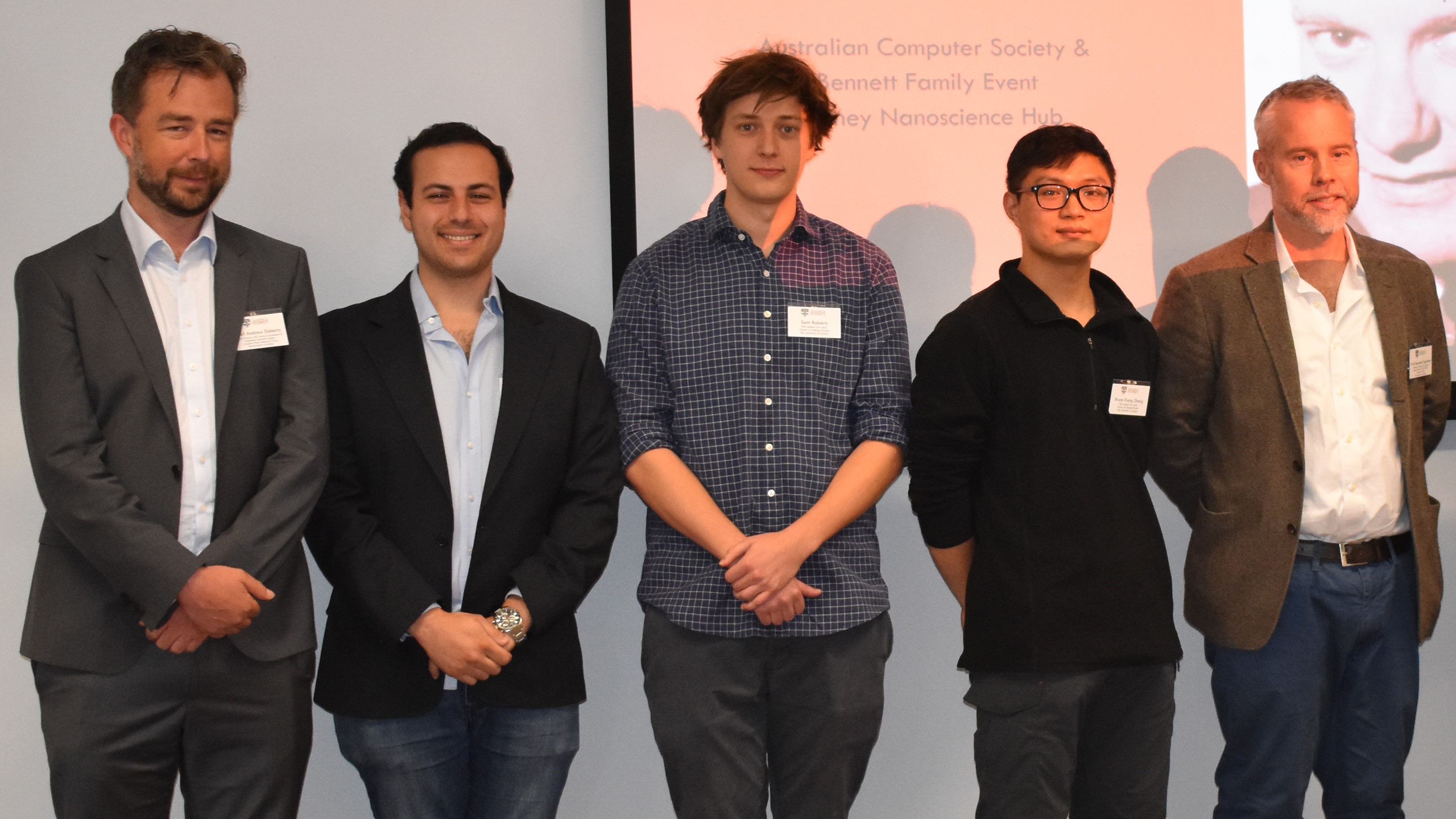Nanoscience has the potential to create sustainable environmental solutions and computer systems that are smaller and faster than anything we know today.
ACS is committed to supporting innovation in this field, having last year pledged financial support to the John Makepeace Bennett Postgraduate Scholarships at the University of Sydney.
The scholarships are in honour of the founding President of ACS, John Makepeace Bennett, who was also Sydney University’s first Professor of Physics (Computing).
They were announced in July last year, when a meeting room in the University of Sydney Nano Institute was unveiled in Bennett’s name.
Opened in April 2016, the institute specialises in quantum science, nanophotonics, materials on the nanoscale and molecular nanoscience – all in the name of creating innovative solutions for a knowledge-based economy.
The institute wants to create the world’s first quantum computer.
“Our students play a vital role through their willingness to connect and collaborate with others and pursue exciting and innovative research at the nanoscale,” said Director of Sydney Nano, Professor Susan Pond AM.
“Their discoveries will lead to the next breakthrough in fields such as quantum computing, communications and cybersecurity.
“The gift [scholarship] allows us to support our brightest PhD students during their canditure, ensuring they have every opportunity to reach their potential.”
Third year PhD student in science/physics, Christopher Chubb, has been researching the relationship between physical constraints and computational complexity for Hamiltonians as part of his studies.
Travel is a frequent and necessary part of his research, and something ACS’ support has allowed him to do.
“I travel regularly as part of my research, and such travel often includes unexpected costs,” Chubb said. "The scholarship helps ease this financial pressure, making travel less stressful.
“I hope to use the scholarship to offset the costs associated with future international travel to visit collaborators and attend conferences and workshops.”
Another third year student, Sam Roberts, believes Sydney Nano’s work towards creating the first quantum devices emulates the pioneering spirit of Bennett.
“It’s a very exciting time to be working in this field, especially here at Sydney Nano,” he said.
“We have amazing facilities and such close proximity to the experimental labs where researchers are trying to build the first quantum devices and computers, much like Professor John Bennett in the early days of computing in Australia.”










